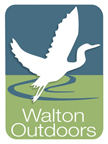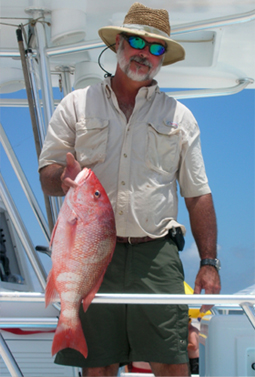Click here to find a charter
Click here for NOAA tide information for Florida Panhandle
Click here for Choctawhatchee River level /prediction
Click here for fishing license info
—————————
More than 265,000 acres of fishing and hunting await the outdoor enthusiast at Eglin Air Force Base Reservation
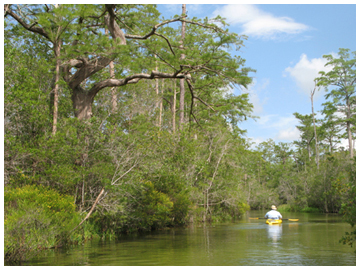
Eglin Air Force Base Reservation is much more than the largest AFB in the free world. Within its 464,000 acres, more than 265,000 are open for public recreation. Activities such as fresh water fishing, hunting, camping, biking, canoeing/kayaking, hiking await outdoor enthusiasts.
More than 17,000 permits are issued each year at Eglin’s Natural Resources Branch Jackson Guard office.
To open an account, users may go to https://eglin.isportsman.net. Those interested in more information on Eglin’s Outdoor Recreation Program may call 850-883-1152.
Address: 107 Highway 85 North, Niceville FL 32578 (just north of Hwy. 20). Tel: (850) 882-4165 or (850) 882-4166
Office hours are:
Mon. – Thurs. 7 a.m. – 4:30 p.m., Fri. 7 a.m. – 6 p.m.
Sat. 7:30 a.m. – 12:30 p.m. Sunday and federal holidays closed
Eglin has many improvements in the works including upgrades to the recreation areas along with the launch of a new website soon. The site will it make it easier for the user to acquire permits, understand the regulations, and a web application posting the daily closings. Currently anyone embarking on Eglin must phone in prior to entering to find out where the closed areas are located. (This site will be updated when Eglin’s new website access is available).
Currently one of the largest improvements under construction is at Anderson Pond. The area is a critical habitat for the endangered Okaloosa darter (Etheostoma okaloosae), a small fish with a range of only six tributary systems in the lower Choctawhatchee Bay drainage. In 1960, Anderson Branch creek was dammed off for the pond, closing the habitat connection of the darter. Eglin is currently restoring the creek connection and including camping areas along with 12+ tent pads, a picnic area, and boardwalks.
In addition, Eglin is improving canoe accesses and currently working on the Turkey creek access at Gooden Bridge off of Range Road 232. Improvements include improved access to the water along with a parking lot in the works.
Rules and regulations are strictly enforced at Eglin as the base’s security is vital to our national defense. The base works hard at making the reservation compatible for the outdoor enthusiast, but enforces its boundaries so as not to jeopardize security. Military missions often require the closure of large portions of areas open to public access. The regulations are a bit complex, however the large guide and map which Eglin provides is comprehensive.
Fishing:
17 freshwater ponds ranging from 4 – 40 acres are available for fishing at Eglin Reservation. You must possess FWC fishing license in addition to an Eglin permit unless you are fishing with a cane pole in the county you reside. Fishing access is authorized from 2 hours before sunrise to 2 hours after sunset. Hurlburt Lake may be fished during daylight hours only.
—————————
The fine art of fly fishing alive and well in Walton County
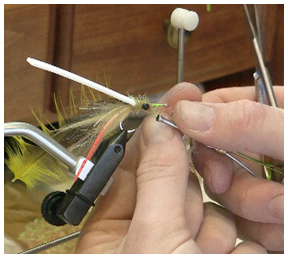
Old Florida Outfitters fishing guide a true master of tying flies
In our fast paced world, it is reassuring to know that a few great sports stand the test of time. One popular ancient sport, fly fishing, dates as far back as the 2nd century.
The fine art of fly fishing is thriving in the Walton County area thanks to Freeport resident Jason Stacy. Working at Old Florida Outfitters in Santa Rosa Beach, Stacy is the shop’s in-house expert on the sport. Not only does he instruct a fly fishing school, he also offers a guide service and is the fly tying expert at the outfitter.
Fly tying is the process of producing an artificial fly used by anglers to catch fish in shallow water. Fly-tying is a process of binding various materials to a hook using thread such as chenille, rubber, feathers and foam. The design replicates various insects, reptiles or crustaceans that fish feed on. Click here to continue
—————————
Shoreline fishing license are free to Florida residents
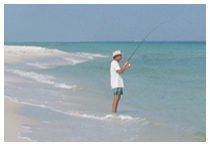 Resident anglers pay only $2.31 vendor fee when buying online or you can get it free at Copeland’s in Freeport
Resident anglers pay only $2.31 vendor fee when buying online or you can get it free at Copeland’s in Freeport
The shoreline fishing license for Florida residents to catch saltwater fish from shore or a structure affixed to shore cost $9 last year, but this year it’s free, beginning July 1.
The Florida Legislature repealed the shoreline license fee during the past session. However, legislators retained the license requirement to prevent a more-costly federal registration fee from taking effect in Florida.
Resident anglers who obtain the shoreline license over the phone or Internet still will have to pay a convenience fee to the vendor. The convenience fee is $2.31 for Internet sales at www.fl.wildlifelicense.com or $3.33 for phone sales at 888-FISH FLORIDA (888-347-4356).
Only Florida residents qualify for a no-cost shoreline license, and the license does not cover fishing from a boat or fishing from a location or structure accessible only by boat. That requires a regular saltwater fishing license: $17 for residents; for nonresidents the cost is $17 for three days, $30 for seven days or $47 per year.
There are some exemptions for license requirements. More information is available at MyFWC.com/License.
—————————
Florida Fish Busters – What is a creel survey?
You might wonder why someone in a Florida Fish and Wildlife Conservation Commission (FWC) boat is stopping you and asking to participate in a “creel survey.” Two questions come to mind. What is a creel? And why does it require a survey? Very good questions – one answer involves tradition; the other answer involves a healthy fishery.
A creel is a wicker basket used for holding fish that an angler has caught, or a wicker fish trap. Today, we still use the expression derived from that old-fashioned, but very stylish, basket. Somehow we haven’t adapted to asking if we can do “a live-well,” “ice-chest” or “catch-and-release” survey.
So bear with us when we ask for your participation. Your answers to our questions are important to the future health of Florida’s fisheries.
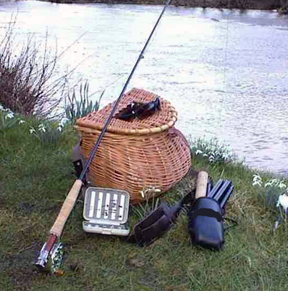
The FWC’s fisheries biologists need to know what you have been catching. Despite using old-fashioned terminology, the sophistication of these vital surveys has grown over the years, and they are now a critical source of information for determining how Florida’s fisheries are doing.
Since creel clerks who conduct these interviews cannot talk to every angler, biologists and statisticians work together to carefully determine a sampling scheme of when and where we momentarily interrupt an angler’s recreation to gather this information. Each angler asked to participate represents many other anglers that we cannot talk to, so it is very important that we get the most accurate information possible. The interviewer will want to know how long you’ve been fishing, and what you caught and harvested as well as what you released. They may also measure your fish, check them for tags and ask some questions about where you live and other information that helps to explain results, including information on your age, which, for instance, relates to license sales.
This information is used to determine what anglers want to catch, what they are catching (species, size and numbers), whether they are keeping them, and other factors that allow biologists to estimate the health of a fishery. Combined with other data, such as information from electrofishing samples, biologists can determine what regulations are needed for size and creel limits, what is needed for habitat restoration, supplemental fish stocking, and where additional access, such as boat ramps, shoreline access, or fishing piers, may be needed.
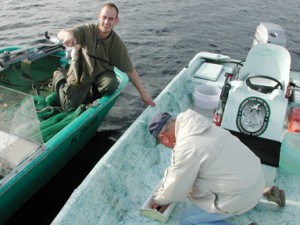
For biologists to make the decisions that ultimately impact the quality of your fishing, they need honest, accurate information. False responses that over- or underestimate your catch can lead to unnecessary or unrealistic solutions. For example, an underestimate of angling success could lead to stricter creel limits (the number or size of fish anglers may legally harvest) when they aren’t necessary and stunting of the fish population because too few big fish are harvested to allow the others to grow rapidly. In case of an overestimate of angling success, the decision may be made that habitat improvements aren’t needed because the fishery is doing so well, delay a proposed fish stocking, or prevent appropriate harvest regulations from being implemented.
Of course, biologists consistently use multiple sources of data to reduce the chance these types of errors will occur. But with recurring budget cuts, creel surveys and angler-attitude surveys become increasingly cost-effective. As other options – such as electrofishing, seining or trawling – are reduced to save money, or sampling – such as block nets and gillnetting – are reduced because of adverse public perception, the need for honest, accurate answers to creel surveys becomes more and more important.
So the next time someone tells you they are conducting a creel survey, remember you are representing many anglers and helping to ensure the safe and sustainable future of quality recreational fishing in Florida when you give a few minutes of your time and accurate information to the creel clerk.
Instant licenses are available at MyFWC.com/License or by calling 1-888-FISH-FLORIDA (347-4356). Report violators by calling *FWC or #FWC on your cell phone, or 1-888-404-3922. Visit MyFWC.com/Fishing/Updates for more Fish Busters’ columns.
